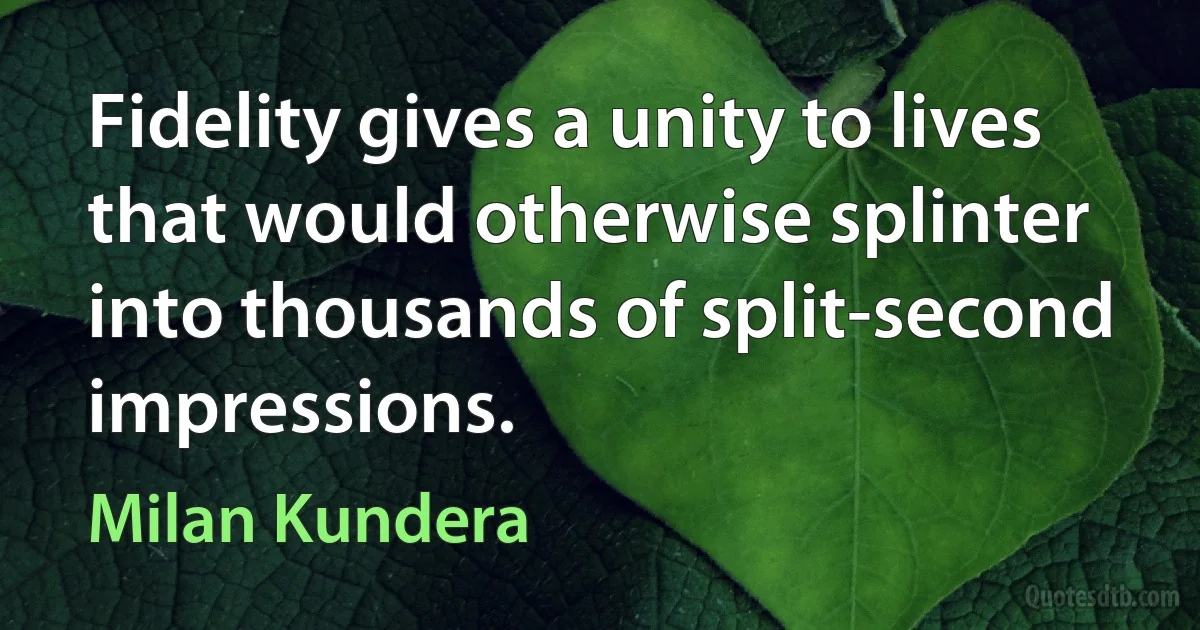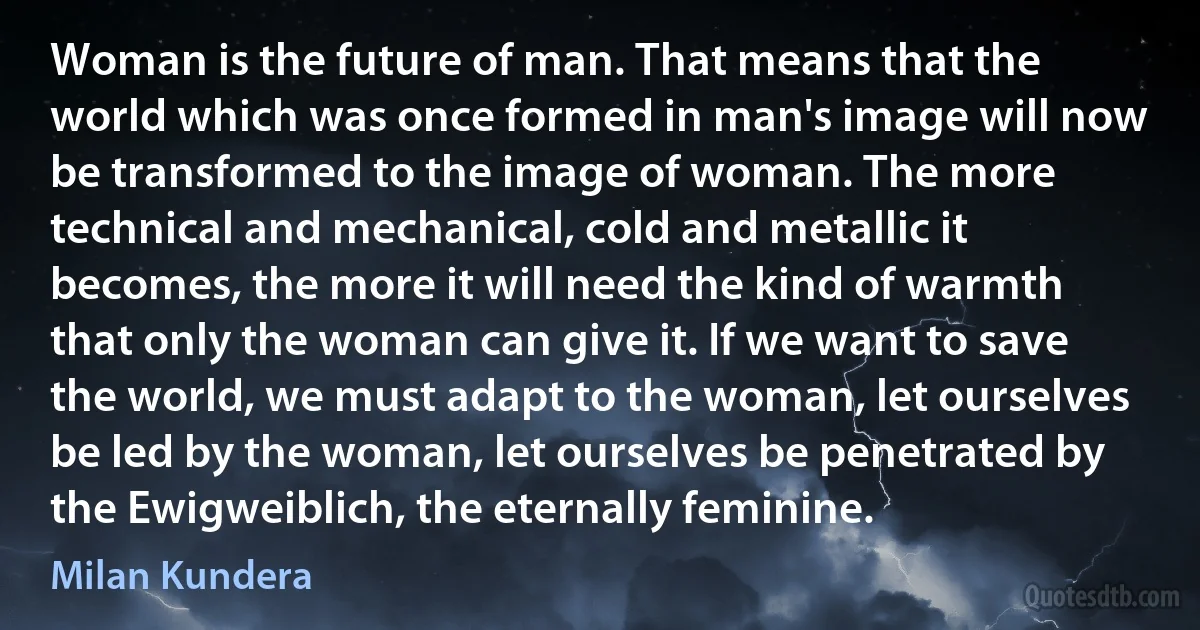Milan Kundera quotes - page 11
His overriding life necessity was not love, it was his profession...He had come to medicine not by coincidence or calculation but by a deep inner desire. Insofar as it is possible to divide people into categories, the surest criterion is the deep-seated desires that orient them to one or another lifelong activity. Every Frenchman is different. But all the actors the world over are similar.

Milan Kundera
Even at the age of eight she would fall asleep by pressing one hand into the other and making believe she was holding the hand of the man whom she loved, the man of her life. So if in her sleep she pressed Tomas hand with such tenacity, we can understand why: she had been training since childhood.

Milan Kundera
The word change, so dear to our Europe, has been given a new meaning it no longer means a new stage of coherent development (as it was understood by Vico, Hegel or Marx), but a shift from one side to another, from front to back, from the back to the left, from the left to the front (as understood by designers dreaming up the fashion for the next season).

Milan Kundera
The present era grabs everything that was ever written in order to transform it into films, TV programs or cartoons. What is essential in a novel is precisely what can only be expressed in a novel, and so every adaptation contains nothing but the non-essential. If a person is still crazy enough to write novels nowadays and wants to protect them, he has to write them in such a way that they cannot be adapted, in other words, in such a way that they cannot be retold.

Milan Kundera
A route differs from a road not only because it is solely intended for vehicles, but also because it is merely a line that connects one point with another. A route has no meaning in itself its meaning derives entirely from the two points that it connects. A road is a tribute to space. Every stretch of road has meaning in itself and invites us to stop. A route is the triumphant devaluation of space, which thanks to it has been reduced to a mere obstacle to human movement and a waste of time.

Milan Kundera
In the realm of totalitarian kitsch, all answers are given in advance and preclude any questions. It follows, then, that the true opponent of totalitarian kitsch is the person who asks questions. A question is like a knife that slices through the stage backdrop and gives us a look at what lies hidden behind it.

Milan Kundera


